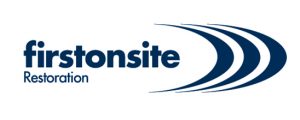Severe flooding in Quebec, New Brunswick and Ontario due to snowmelt and rain has turned a national spotlight on the impact of extreme weather events. It’s no wonder, then, that a Canada-wide emergency awareness/preparedness survey conducted by FirstOnSite Restoration has revealed growing concerns over the ability to protect against future events and manage the potential damage.
“With the magnitude of recent catastrophic weather-related events in the headlines, Canadians are recognizing that now is an apt time to prepare for what lays ahead,” says Bill Fender, Senior Vice President, Commercial Property Portfolios, FirstOnSite.
Flooding is a particular focus among Canadian residents and property stakeholders. According to FirstOnSite’s survey, A majority (68%) of respondents said it is their number one concern, followed by earthquakes (41%) and hurricanes (37%).
Regional flooding concerns were highest among respondents in Quebec (81%), where several communities including greater Montreal have been ravaged by this year’s spring floods. Manitoba (79%) and Ontario (70%) were the other two regions that topped the national level of concern. The number was lowest in Alberta where only half of residents are concerned about flooding.
Unnatural causes
Flooding concerns aren’t necessarily tied to natural events. While the lion’s share of survey respondents had experienced a flood of some type, a quarter of those noted it was a result of a pipe burst or foundational leak.
“Not all disasters are natural,” says Fender. “We may see a lot of news about weather-related flooding, but the truth is there are a number ways water can pose safety concerns and wreak damage on a property.”
When it comes to ranking those damages, Canadians are most concerned about mold (77%). This is followed closely by concern over the loss of valuables, causing major renovations, having to leave their homes, personal safety, and their overall level of preparedness.
Stemming the tide
Flooding and mold-related issues may top Canada’s list of emergency preparedness concerns, but the good news is there is much that property managers/owners can do to bolster their property’s defenses.
According to FirstOnSite, some strategies include:
- Stay informed. Follow the latest public weather alerts for your area at gc.ca/warnings.
- Turn off the electricity in flood-prone areas of the property if a flood is expected in your area.
- Waterproof your basement/lower levels. Fill any cracks in the foundation, and put weather protection sealant around windows and the base of ground-level doors. Install flood shields or barriers for basement windows and doors.
- Anchor furnaces, water heaters, and other property equipment to the floor. Unsecured, they may tip over or float in a flood. A ruptured tank may leak fuel, creating a serious fire hazard.
- Check that all lower-level flood drains are not blocked or covered. For extra precaution, you can install a water alarm to let you know if water is accumulating.
- Clear debris from your roof and eavestroughs. This will ensure they drain properly during heavy rains.
- Make sure your sump pump is working, and install a battery-operated backup in case of a power failure.
Read more flood preparation tips, and learn more emergency preparation/recovery strategies for every seasonal risk at FirstOnSite.com.
Survey Methodology
From May 2 to May 3, 2019, an online survey was conducted among a representative sample of 1087 Canadians who are members of the Angus Reid Forum. For comparison purposes only, the sample plan would carry a margin of error of +/- 3.0 percentage points, 19 times out of 20.
FirstOnSite Restoration is a leading Canadian-based disaster restoration company providing remediation, restoration, and reconstruction services nationwide, as well as for the US large loss and commercial market. For more information, visit www.firstonsite.ca.







